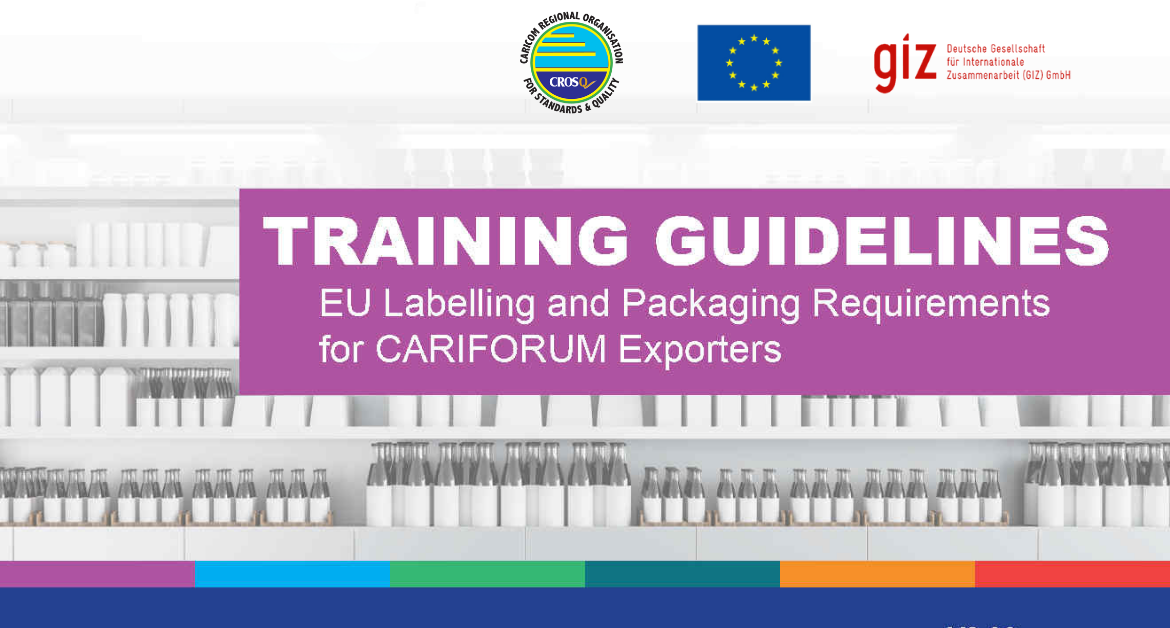Businesses looking to export to Europe have access to a new resource for packaging and labelling requirements of that market.
CROSQ, in collaboration with the Deutsche Gesellschaft für Internationale Zusammenarbeit’s (GIZ) project entitled, “Supporting sustainability aspects in the implementation of EU Economic Partnership Agreements through critical observation of their execution ( EPA NEW II)”, commissioned by the German Federal Ministry for Economic Development (BMZ) embarked on a capacity building exercise which was hoped to benefit CARIFORUM businesses.
Phase two, which started in May 2020 and ends this month, April 2023, followed the first phase of the project which commenced in May 2017, with an objective of fostering implementation of the Economic Partnership Agreement by regional organisations, their member states, private sector and civil society, towards supporting sustainable development.
Both organisations collaborated on the design and execution of the capacity building activity for the public and private sector in understanding non‐tariff requirements for market access into third states. This is because non‐tariff measures have been increasingly used to regulate international markets to assure quality and safety, particularly, in the European Union.
This resulted in training for National Standards Bureaux and small- to medium-sized enterprises in the Caribbean to equip them with the capacity to meet European market requirements and gain market access.
GIZ’s Regional Coordinator of EPA NEW II, Ms. Sanya Alleyne expressed satisfaction with the project which achieved the overall purpose to boost regional firms’ understanding of the trading requirements.

“The training was intended to support regional firms on capitalising on the opportunities under the Comprehensive Economic Partnership Agreement (CEPA) for the export of packaged goods to the European Union, while building capacity within the regional Bureaux of Standards in this area with a specific focus on:
- Enhancing their knowledge on the application of European standards and related conformity assessment procedures;
- Gaining knowledge on the application of European Union standards and regulations for labelling and packaging of goods with a focus on pre‐packaged foods; and
- Gaining knowledge on the application of the disciplines for Sanitary and Phyto‐Sanitary and Technical Barriers to Trade to support international trade.”
A consultant attached to the project conducted research and built capacity on the requirements for market access into the EU market, specifically as it relates to EU standards and regulations for packaging and labelling for exporters, particularly for pre‐packaged food over a three (3) day period.
A training guide was prepared to assist the National Bureaux of Standards (NSBs) to deliver similar training to the private sector, and that guide, according to CROSQ’s Technical Officer, Standards Development and Technical Regulations, Mr. Fulgence St Prix, is available for download, free, from the CROSQ e-library.



